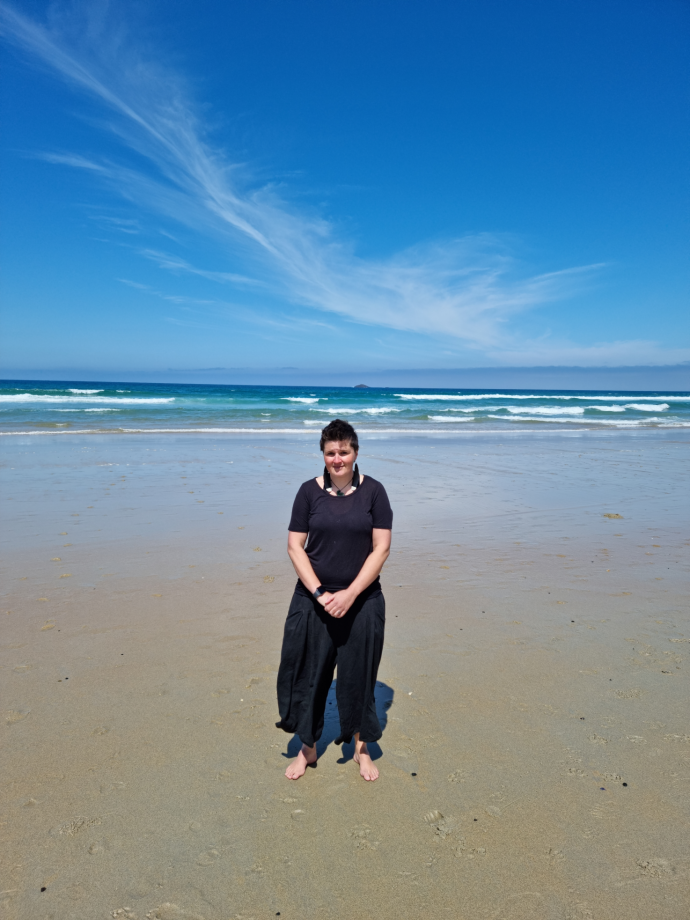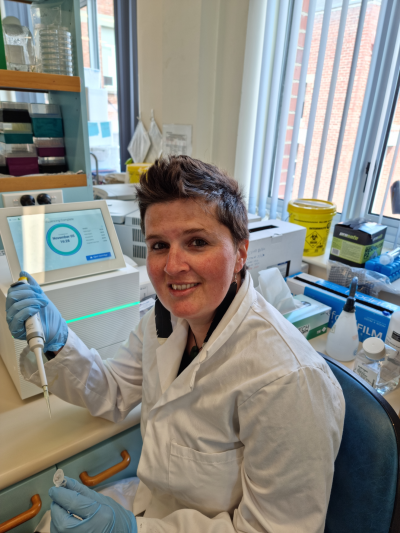Alana Alexander

2021: Dr Alana Alexander (Ngāpuhi: Te Hikutu, Pākehā), University of Otago, has been awarded a Rutherford Discovery Fellowship for research titled ‘Creating pūrākau of past, present, and future conservation impacts using genomics’
Published on 11 Whiringa-ā-rangi November 2021
Biography
Dr Alana Alexander obtained her PhD in 2014 from Oregon State University after completing her undergraduate studies at the University of Auckland. Dr Alexander was then a postdoctoral scholar at the University of Kansas, followed by the University of Otago, receiving a Rutherford Postdoctoral Research Fellowship in 2019 for the latter. Dr Alexander has also received other awards and funding, including a prestigious International Fulbright Science and Technology Award, Predator Free 2050 Capability Development funding, and a University of Otago Kaupapa Māori Award. Dr Alexander’s research artfully weaves te ao Māori, conservation biology and genomics research in a way that facilitates kaitiakitanga and conservation of taonga species of Aotearoa and empowers Māori communities in this space.
Research Summary
Human activity has a long and ongoing track record of negatively impacting our planet, and the moana/ocean has been particularly affected. However, quantifying these impacts and converting this data into actions can be difficult, with much of the moana remaining unexplored, and many aspects difficult to measure. Genomic data is a powerful tool for addressing these challenges, as genetic information from just a single organism reflects the ecosystem-level impacts that have acted throughout that creature’s whakapapa.
Dr Alexander’s Rutherford Discovery Fellowship will seek to clarify the past impacts of fisheries on the endangered Hector’s and Māui dolphins (the latter more critically so). Dr Alexander will integrate animal and microbiome genomics to investigate why some dolphins are susceptible to toxoplasmosis ̶ a deadly, infectious disease ̶ while others are resistant. Next, she will use genomics to predict the impact of future climate change on both whales and dolphins. Samples from species with different temperature preferences will reveal the impacts of past climate change and this information will be incorporated into an advanced model to forecast how these species will be impacted by continuing global warming.

Dr Alana Alexander pipetting cetacean DNA. Photo supplied.
While genomics has immense potential in the conservation of culturally important marine species such as whales and dolphins, Dr Alexander recognises that communication and co-leadership of projects with Māori have so far been limited. A major barrier is translating the highly technical language and approaches of genomics to local kaitiaki. Certainly, te ao Māori possesses many tools for conveying complex relationships, including pūrākau, or tribal narratives. And so, by working alongside local communities, Dr Alexander is dedicated to co-developing “science pūrākau”; a powerful way of translating her scientific work into memorable narratives that will empower and uplift those who hold kaitiakitanga and rangatiratanga over taonga species.
Dr Alexander’s duality as Māori and scientist is pivotal in the development of pūrākau science, allowing her to establish a framework that will contribute understanding of the threats facing our taonga species and ensure equitable benefit-sharing of genomics approaches.
